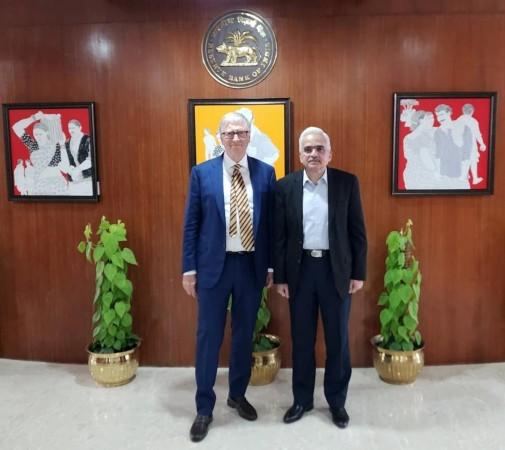Bill Gates, co-founder of Microsoft and the Bill & Melinda Gates Foundation, visited the Indian Agricultural Research Institute (IARI) in Pusa, Delhi on Wednesday and interacted with research scientists. A week ago, he had hinted in his blog that he would collaborate with Indian researchers on several fronts.
In his blog 'Gates Notes', he wrote that India offers promise for the future and the country has shown that it is capable of tackling large issues all at once, even during a time of crisis.
The world is capable of making progress on many large problems at once with the right innovations and delivery channels. Remembering the oft-quoted lines, "There isn't enough time or money to solve both at the same time," he said, "But India proved all the responses wrong. There is no better proof than the remarkable progress that India has accomplished."

He said the Gates Foundation collaborated with the public sector and CGIAR institutions in India to assist the work of researchers at the Indian Agricultural Research Institute (IARI) in Pusa, who discovered a brand-new remedy in chickpea varieties with over 10% higher harvests and greater drought resistance.
Gates said farmers already have access to one variety, and the institute is presently working on developing more and the country is better equipped to continue feeding its citizens despite the increasing global warming. "It's not a stretch to state that a field in Pusa is currently home to the agricultural future of India," he wrote in his blog.

"We don't yet have all the resources necessary to address issues like climate change, poverty, and health, which is one of the reasons why they appear insurmountable. But I'm confident that we will, in part because of pioneers like the IARI researchers," Gates wrote in his blog.
As per the blog, Gates visited the Indian Agricultural Research Institute on Pusa Road in New Delhi and March 1, and interacted with the scientists and had spent some time on the field with crops which are being developed to resist climate change, especially the global warming.














